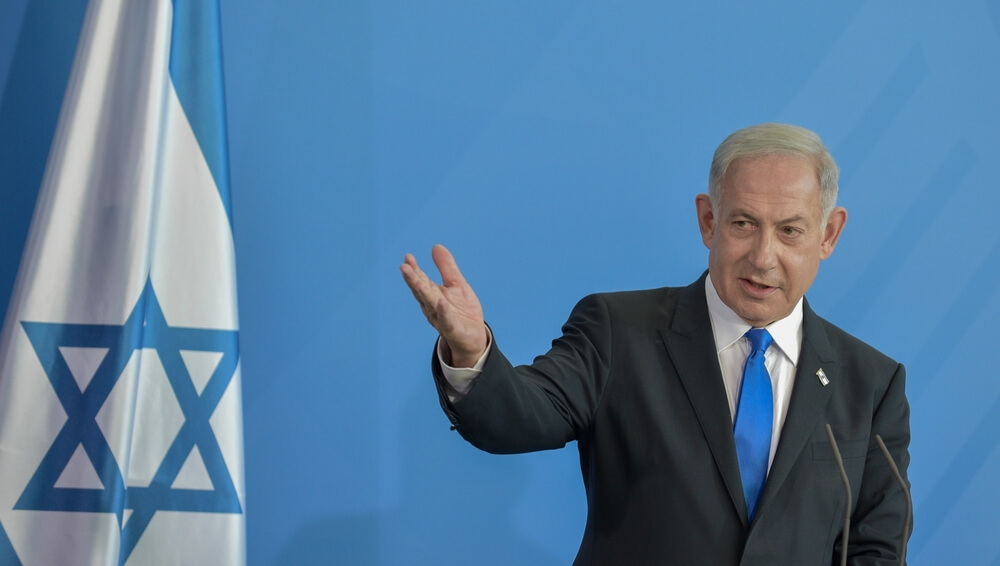The chances of achieving peace in the Middle East increased sharply after the killing of Hamas leader Yahya Sinwar in an Israeli military operation in Gaza on Wednesday. Or is it just the impression of players outside the region who follow a different logic than the one that prevails between the conflicting parties?
The killing of the planner of the terrorist attacks on October 7 brought some satisfaction to Israel, to the families of those killed and kidnapped, as well as to that part of humanity that, even after a year, is appalled by the actions of Sinwar and Hamas.
Beyond the symbolism of settling the score, the elimination of the most radical among extremists should represent a significant loss that Hamas cannot afford in order to sustain its operational resistance against Israel's actions in Gaza.
Following the assassination of Ismail Hayyeh in Tehran on July 31, Israel proceeded with the assassination of Sinwar in Rafah, thereby confirming its existing strategy in Lebanon against Hezbollah.
This is an effective way to rapidly reduce the potential for extremists to continue to pose a threat to Israel, which has been one of the main objectives of the operation since its start in Gaza.
Regardless of the attempts of the remaining extremist leaders, as well as Iranian officials, to encourage followers to continue the fight with equal strength, the assassinations of the leaders of Hamas and Hezbollah leave irreparable damage in the chain of command.
Furthermore, the psychological impact on the followers is devastating, particularly on those who are in the running to replace the fallen leaders. But is Sinwar's death significant enough to trigger a swift ceasefire?
Celebrating "martyrs"
"Hamas becomes stronger and more popular with each elimination of its leaders. It hurts to lose people, especially unique leaders like Yahya Sinwar, but we are sure we will win in the end," said Basem Naim, head of Hamas' political bureau.
Tehran swiftly provided encouragement to the pro-Iranian extremists in Gaza following their significant loss. The President of Iran, Masoud Pezeshkian, said that "the martyrdom of commanders, leaders, and heroes will not make a dent in the Islamic people's fight against oppression and occupation."
The head of Iranian diplomacy, Abbas Araghchi, said that after the death of Yahya Sinwar, "the cause for the liberation of Palestine from occupation is more alive than ever."
All Tehran and its Middle Eastern affiliates can do is call for the continuation of fighting
One could not expect a different, defeatist rhetoric from the extremist centres of influence. All Tehran and its Middle Eastern affiliates can do is call for the continuation of fighting. However, the celebration of "martyrs" and calls for even stronger resistance against Israel are becoming increasingly frequent.
This is where the Israeli government sees a unique opportunity to continue hitting its regional enemies to a degree they will never recover from.
“The beginning of the end”
The words of PM Benjamin Netanyahu that the assassination of Yahya Sinwar is "the beginning of the end" are ambiguous enough to give reason for optimism to Western partners who are pushing for a ceasefire as soon as possible, but also to the domestic public who are demanding the return of the hostages from Gaza and the destruction of the extremist threat.
Western leaders saw the assassination of the Hamas leader as a turning point for achieving a truce.
"I told the prime minister of Israel yesterday, let's also make this moment an opportunity to seek a path to peace, a better future in Gaza without Hamas," stated US President Joe Biden in Berlin at the beginning of his meetings with European leaders.
Western leaders' pressure on the Israeli government is unanimous, so it should be effective
According to his host, Chancellor Olaf Scholz, the death of Yahya Sinwar opens "the concrete prospect of a ceasefire in Gaza, of an agreement to release the hostages held by Hamas."
Western leaders' pressure on the Israeli government is unanimous, so it should be effective. However, despite the consistent pressure, Prime Minister Netanyahu has managed to defy it and uphold his government's military agenda.
Will the truce have to wait?
The killing of Yahya Sinwar will represent a significant chance for the Israeli operation in Gaza to continue the military suppression of Hamas to the point where it no longer poses a threat to Israel. In addition to returning hostages home, it was one of the initial goals of the operation just over a year ago.
 The killing of Yahya Sinwar will represent a significant chance for the Israeli operation in Gaza to continue the military suppression of Hamas to the point where it no longer poses a threat to Israel - Benjamin Netanyahu
The killing of Yahya Sinwar will represent a significant chance for the Israeli operation in Gaza to continue the military suppression of Hamas to the point where it no longer poses a threat to Israel - Benjamin Netanyahu
The behaviour of the Israeli army towards Hezbollah following the assassination of its leader, Hassan Nasrallah, at the end of September suggests this. Since the assassination of Hassan Nasrallah, which many, particularly in the West, perceived as a turning point for conflict pacification, Israel continued to decimate Hezbollah's potential, even going as far as targeting its leadership.
Deputy Gaza Hamas chief Khalil Al-Hayya indirectly announced that the chances of the continuation of the conflict in Gaza are greater than the chances of a truce. On Friday, following Sinwar's murder, he reiterated that Israel will not receive the hostages back until the "aggression" ceases and the Israeli forces leave the Strip.
For Netanyahu's government, this is a much more convincing announcement and will determine its further moves more than the extremist leader's slogans about "martyrdom" and the continuation of resistance regardless of his death.
The truce will more likely have to wait, despite the window created by the elimination of the Hamas leader and the insistence from Israel's Western partners.